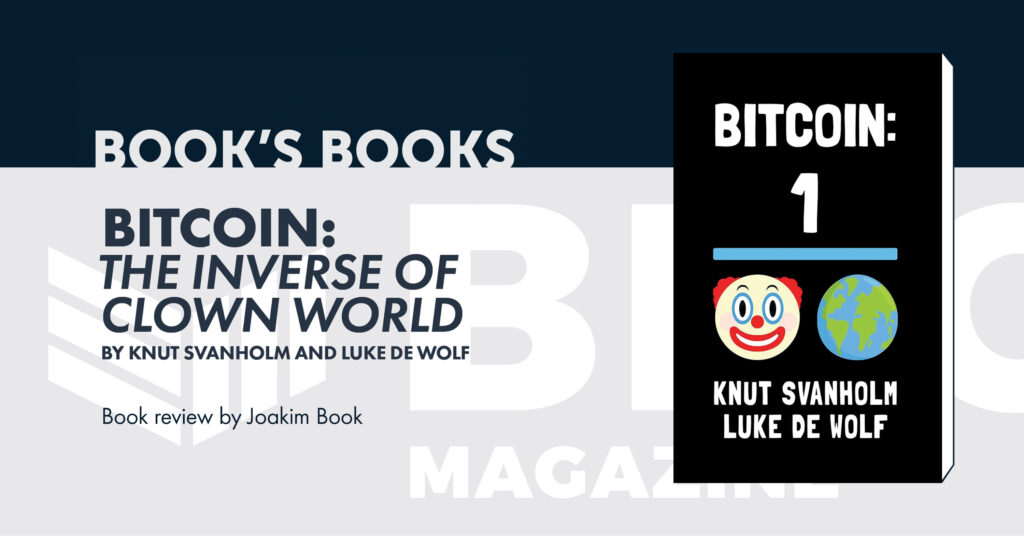The ECB Economists Aren't Exactly Wrong About Bitcoin (They’re Just Useless)



Earlier this month, the European Central Bank (ECB) published a paper in which the authors claim the existence of Bitcoin could impoverish non-holders and latecomers.
Specifically, they wrote:
“Since Bitcoin does not increase the productive potential of the economy, the consequences of the assumed continued increase in value are essentially redistributive, i.e. the wealth effects on consumption of early Bitcoin holders can only come at the expense of consumption of the rest of society.”
It drew the ire from many bitcoiners, including Frank in his Take… but isn’t this essentially what hyperbitcoinization is? If bitcoin becomes the money of the world, HODLers become the new wealthy elite while the fiat bag holders would effectively go broke, right?
The real crux, I think, lies in the first part of the quote. Many bitcoiners, including myself, believe that Bitcoin in fact would increase the productive potential of the economy. (There are several reasons for this, but a big one is that it gets rid of fiat currency’s Cantillon effect, which largely benefits governments.)
If it had been possible in 2009 to swap all fiat currency in the world for bitcoin so everyone received a representative share (thus no redistributive effects), that may arguably have been preferable… but the ECB economists would still be against it: they just don’t see the benefit of bitcoin in the first place.
Since Satoshi Nakamoto had no way to swap everyone’s fiat for bitcoin even if he wanted to, it makes sense that he launched the project the way he did, allowing anyone to adopt this superior money whenever that fits their individual risk-appetite.
If the ECB economists believe there is a better way to distribute this new form of money, I'd suggest they use their Cantillon-funded salaries to write a paper about that.
This article is a Take. Opinions expressed are entirely the author's and do not necessarily reflect those of BTC Inc or Bitcoin Magazine.
The ECB Economists Aren't Exactly Wrong About Bitcoin (They’re Just Useless)



Earlier this month, the European Central Bank (ECB) published a paper in which the authors claim the existence of Bitcoin could impoverish non-holders and latecomers.
Specifically, they wrote:
“Since Bitcoin does not increase the productive potential of the economy, the consequences of the assumed continued increase in value are essentially redistributive, i.e. the wealth effects on consumption of early Bitcoin holders can only come at the expense of consumption of the rest of society.”
It drew the ire from many bitcoiners, including Frank in his Take… but isn’t this essentially what hyperbitcoinization is? If bitcoin becomes the money of the world, HODLers become the new wealthy elite while the fiat bag holders would effectively go broke, right?
The real crux, I think, lies in the first part of the quote. Many bitcoiners, including myself, believe that Bitcoin in fact would increase the productive potential of the economy. (There are several reasons for this, but a big one is that it gets rid of fiat currency’s Cantillon effect, which largely benefits governments.)
If it had been possible in 2009 to swap all fiat currency in the world for bitcoin so everyone received a representative share (thus no redistributive effects), that may arguably have been preferable… but the ECB economists would still be against it: they just don’t see the benefit of bitcoin in the first place.
Since Satoshi Nakamoto had no way to swap everyone’s fiat for bitcoin even if he wanted to, it makes sense that he launched the project the way he did, allowing anyone to adopt this superior money whenever that fits their individual risk-appetite.
If the ECB economists believe there is a better way to distribute this new form of money, I'd suggest they use their Cantillon-funded salaries to write a paper about that.
This article is a Take. Opinions expressed are entirely the author's and do not necessarily reflect those of BTC Inc or Bitcoin Magazine.

